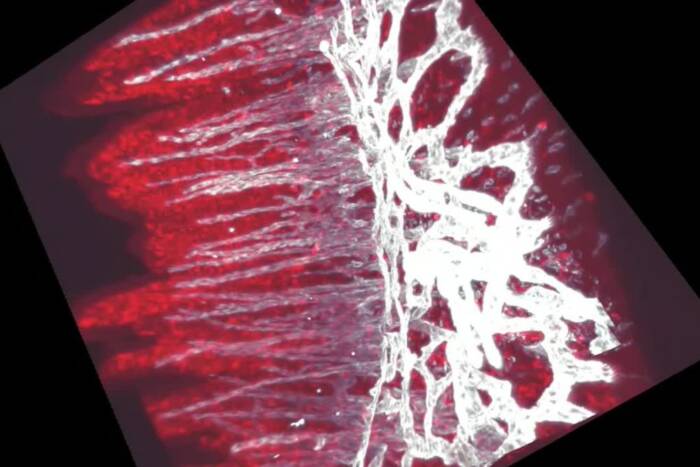In brief: Immune cells surveil intestine to prevent infections
As essential as food is for the body to work, its movement through the intestine poses an infection risk. A single layer of cells is tasked with a big responsibility: to keep harmful bacteria out while also maintaining friendly ones and extracting nutrients. Immune cells called intraepithelial lymphocytes (IELs) that reside at this barrier and are thought to play a role in preventing infection, yet little is known about their exact function.
In research reported in Cell, Rockefeller’s Daniel Mucida and colleagues used new imaging techniques to access the remote location of IELs in mice. The researchers found that IELs act as a surveillance force responsible for overseeing specific sections of the intestinal barrier. When they disrupted the intestinal barrier’s ability to sense bacteria, or manipulated the function of IELs, the mice became more susceptible to a Salmonella infection.
These findings clarify the relationship between the barrier and its designated immune cells, suggesting that the barrier tissue warns IELs about the presence of both friendly bacteria and dangerous pathogens in the intestine, allowing these cells to generate an appropriate immune response.



